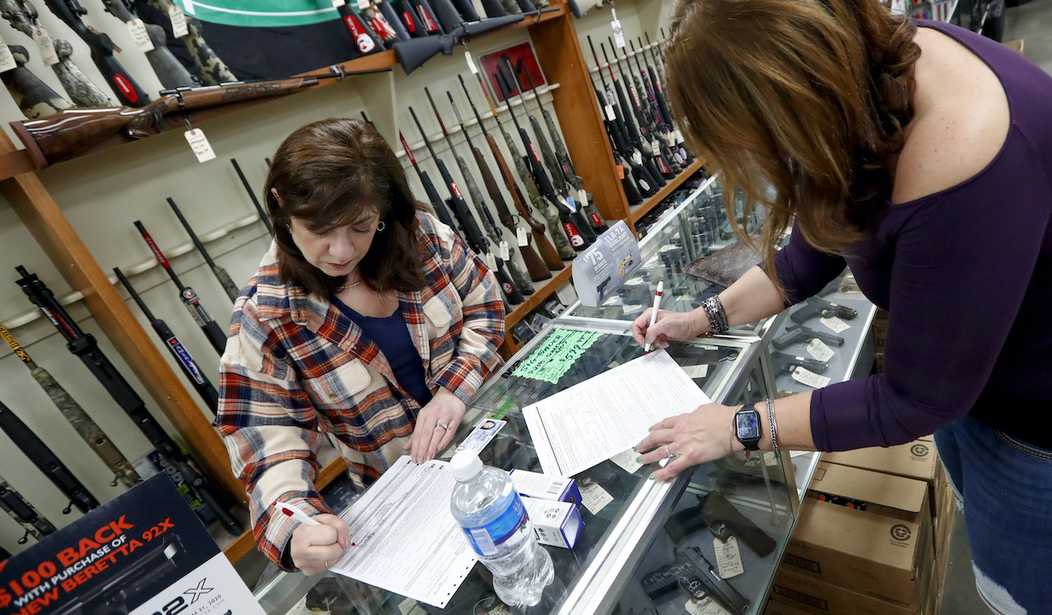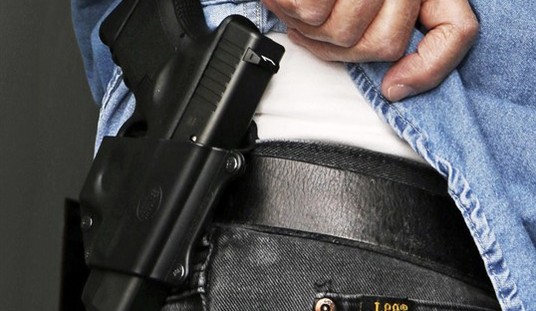A suicide in Colorado could lead to nationwide changes to the current background check system for retail gun purchases, but the Department of Justice and the Bureau of Alcohol, Tobacco, Firearms, and Explosives are in a dispute over whether or not the changes proposed by the DOJ can actually be put in place.
The DOJ’s recommended changes stem from a 2019 suicide in Colorado, where a young woman from Florida traveled to the state around the anniversary of the Columbine shootings. 18-year old Sol Pais, who was apparently obsessed with the killings, purchased a pump action shotgun from a gun store in Littleton, Colorado, despite the fact that under Florida law she was barred from buying a gun until she turned 21. Federal law allows under-21s to purchase long guns, but not handguns, from federally licensed firearms retailers… unless they’re prohibited in their home state from doing so.
The FBI believed that Pais may have been plotting a similar attack on a Colorado school, and there was a statewide manhunt to locate her, with dozens of schools shutting down as a precaution. Instead of launching an assault on a school, however, Pais ended up taking her own life.
After Pais’ body was found next to the shotgun that she’d purchased, several members of Colorado’s congressional delegation asked the DOJ to investigate, what, if anything, could be done to block gun sales to people like Pais.
The Colorado gun dealer ran a background check on Pais through the National Instant Criminal Background Check System, and she was approved for the sale under Colorado laws. However, under federal law, she should have been denied the sale in Colorado because she did not qualify to own the weapon in her home state of Florida.
But the FBI’s electronic background check system doesn’t match up gun-ownership rules in two states when they should apply to a buyer. Instead, verification is left up to the gun dealers, the audit said, and there’s no backup when a dealer makes an error.
The Department of Justice is recommending that the FBI update the National Instant Check System to allow FFLs to verify that gun purchasers are eligible to buy the gun in both the state where they live and the state where the sale takes place.
“We believe that improving the NICS system so that it automatically verifies an out-of-state purchaser’s eligibility under both the state-of-sale and the state-of-residence age requirements would reduce the risk of improper firearms sales under federal law,” the audit said.
The FBI agreed with the recommendation and said it will work with other agencies to make the necessary changes in its computer system. However, the Bureau of Alcohol, Tobacco, Firearms and Explosives concluded that updating the background check system could lead to denials that do not violate state laws.
What do you want to bet that if David Chipman gets confirmed as ATF director, the agency’s concerns about erroneous denials will suddenly disappear?
The easiest solution to the problem would be to simply recognize that adults under the age of 21 have the same Second Amendment rights that a 22-year old possesses. And in fact, that’s what the Fourth Circuit Court of Appeals determined just this week, in a decision that ruled federal law barring handgun purchases by those under the age of 21 to be a violation of their constitutional rights. If the Supreme Court ultimately upholds that decision, then the FBI and ATF won’t have to try to figure out a way to check the age eligibility of out-of-state buyers, because there’ll be one standard across all 50 states.
Sol Pais’ story is a sad one, but you’d have to be a fool to believe that the real answer to preventing this type of suicide is to add more red tape to the process of purchasing a gun. Pais could have used some mental health treatment, but she never got the help she needed. In order to prevent future cases like this, we need to be looking at ways to ensure that those in crisis get that help, instead of just adding another layer of bureaucracy to those legally purchasing a firearm.









Join the conversation as a VIP Member